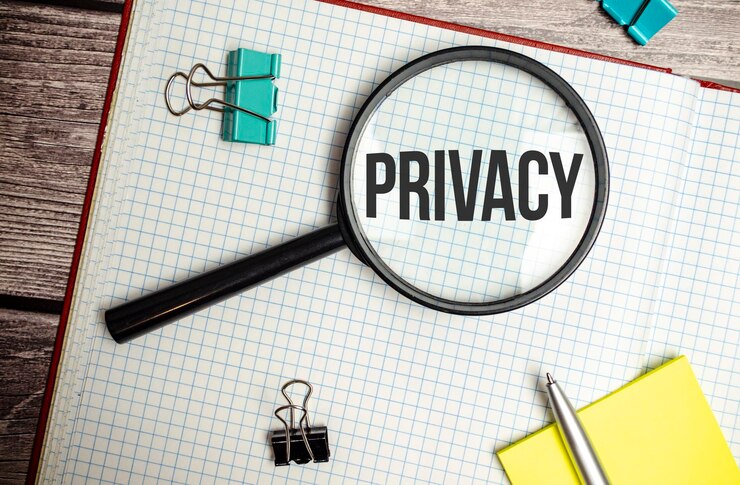Evaluating Federal And State Privacy Laws: Different Approaches To Privacy Protection In the US
5 Mins Read
Published on: 12 September 2023
Last Updated on: 06 September 2024

toc impalement
The regulative collection and use of personal data is important for every citizen. However, the United States does not have a single comprehensive federal law! According to the PIA’s research, with no federal regulations on online privacy, each state creates its own rules. Some have stronger protections against online data collection, sharing, and usage monitoring; others have less complete safeguards.
Well, these laws vary widely from state to state.
- The Federal Trade Commission Act (FTC).
- The Privacy Act of 1974.
- The California Consumer Privacy Act (CCPA).
- Gramm–Leach–Bliley Act (GLBA).
- Children’s Online Privacy Protection Act (COPPA).
- Health Insurance Portability and Accountability Act (HIPAA).
- The New York SHIELD Act.
- Family Educational Rights and Privacy Act (FERPA).
However, many are unaware of the data security concerns. If you do not understand the things happening around you, it can create a chance of getting into great danger in the future. The online world might seem attractive, and you might like to spend time on social media, but everything comes with a cost.
Here, your private data can be compromised with the involvement. So, it’s time to be aware of privacy concerns and act quickly.
Well, if you research US online security, you will get to know things better than before. This awareness may help you stay protected and keep your data encrypted prominently.
However, data privacy regulations are increasing with the developing concerns of the United States. In July 2022, the American Data Privacy and Protection Act (ADPPA) is a process that works for the U.S. House of Representatives.
Well, a federal privacy bill works omnibus on the companies’ artificial intelligence and how they can use it.
Here, we will provide insights into the different states’ privacy acts and regulations. It will help you understand the current situation and condition of the U.S. regarding data privacy and enactment.
The Best U.S. States For Online Privacy
The states’ enactment includes the key obligations and restrictions of personal data processing. We have already mentioned that the U.S. federal does not have any direct single law, but it comes with different states and their proceedings.
From data transparency to retention, everything comes under different state laws. According to the efficiency and promise of their laws, we have considered some of the best privacy-maintaining states in the U.S.
Let’s check those out!
California
ACLU is one of the most comprehensive digital privacy laws. Besides that, California has never stopped strengthening its laws and boundaries of data privacy and enactment.
However, compared to other states, California exposes many laws regarding data privacy that others simply ignore. From protecting data from internet-of-things to restrictions for minors, making it the best state in the U.S. to protect user data.
Virginia
Virginia comes with a strong Consumer Data Protection Act!
This particular act ensures better privacy for their people. According to the act, the authorities:
- Need to delete on-demand personal data.
- Must correct any inaccurate data.
- Have to reveal the data collected from customers.
- Need to allow consumers to opt out of data sharing from third-parties.
Utah
The Consumer Privacy Act came into action in December 2022. Utah’s recent advancement with this particular law is groundbreaking. This particular app will help you to be aware of the data collected by the companies so far.
- You can simply opt out of third-party data sharing.
- You will be able to request your data to be deleted.
Worst U.S. States For Online Privacy

All the states are not viable with your data privacy protection process. Some of the states are not working fine at taking it seriously, and they need to improve it seriously.
Being a big continent, the U.S. also has different facilities and backdraws. Some of the powers are on states, and they have the authority to enact their state rules. In this process, some states are not working well on their state laws; thus, they are on our worst list of data protection.
Idaho
They have a court-recognized privilege for journalists. They have also considered data protection laws for K-12 student information.
However, they have failed to add any crucial substance in managing electronic monitoring by employers. This is a key backdraw in this current environment of online data protection and necessity.
Pennsylvania
Pennsylvania also has a shield law for its journalists. Though there must be the consent of two parties for the recording purpose, there is not much regarding data protection for any state.
They have significantly failed to introduce laws on data disposal.
Mississippi
Like Pennsylvania, it also has a shield law for journalist’s protection. Additionally, they have insurance data security laws to protect the employees.
However, the law against social media monitoring by employers is not firm in the state.
South Dakota
Law to protect K-12 students, a shield law, genetic data protection laws, and insurance laws come on stage in South Dakota finely. However, they have failed to consider governing data brokers in recent years, which convinced us to keep it within the bad list.
What Types Of Data Are Covered By U.S. Privacy Laws?
Data privacy is a big concern for modern world people, and we all need to understand the importance. Well, understanding data privacy also comes under the sensitivity of the particular data.
The state decides which data are sensitive and which are not. The U.S. law considers some of the information as sensitive.
- Personally identifiable information (PII).
- Personal health information (PHI).
- Student records.
- Personally identifiable financial information (PIFI).
Name, address, Social Security number, health status, medical history, insurance information, Credit card numbers, bank account details, transcripts, billing details, class schedule, and student grades all come under the abovementioned sections.
2023 Key Updates And Trends
The privacy law trends within the U.S. came up with various key updates in 2023! Some of this year’s key modifications or added things are mentioned below.
- New York added a new section as an electronic monitoring system to safeguard the Civil Rights Code in the workplace.
- From July 2023, Connecticut enacted a new law to protect personal data while regulating online monitoring.
- California is more focused on its employee data and children’s data privacy.
Well, there is room for improvement. Only four states specified that consumers can request companies amend inaccurate personal data. This is quite unfortunate for the U.S., being a developed country.
Let’s hope for the best in the upcoming years! People are becoming aware, and the states also need to be.
Read Also:


















Comments Are Closed For This Article